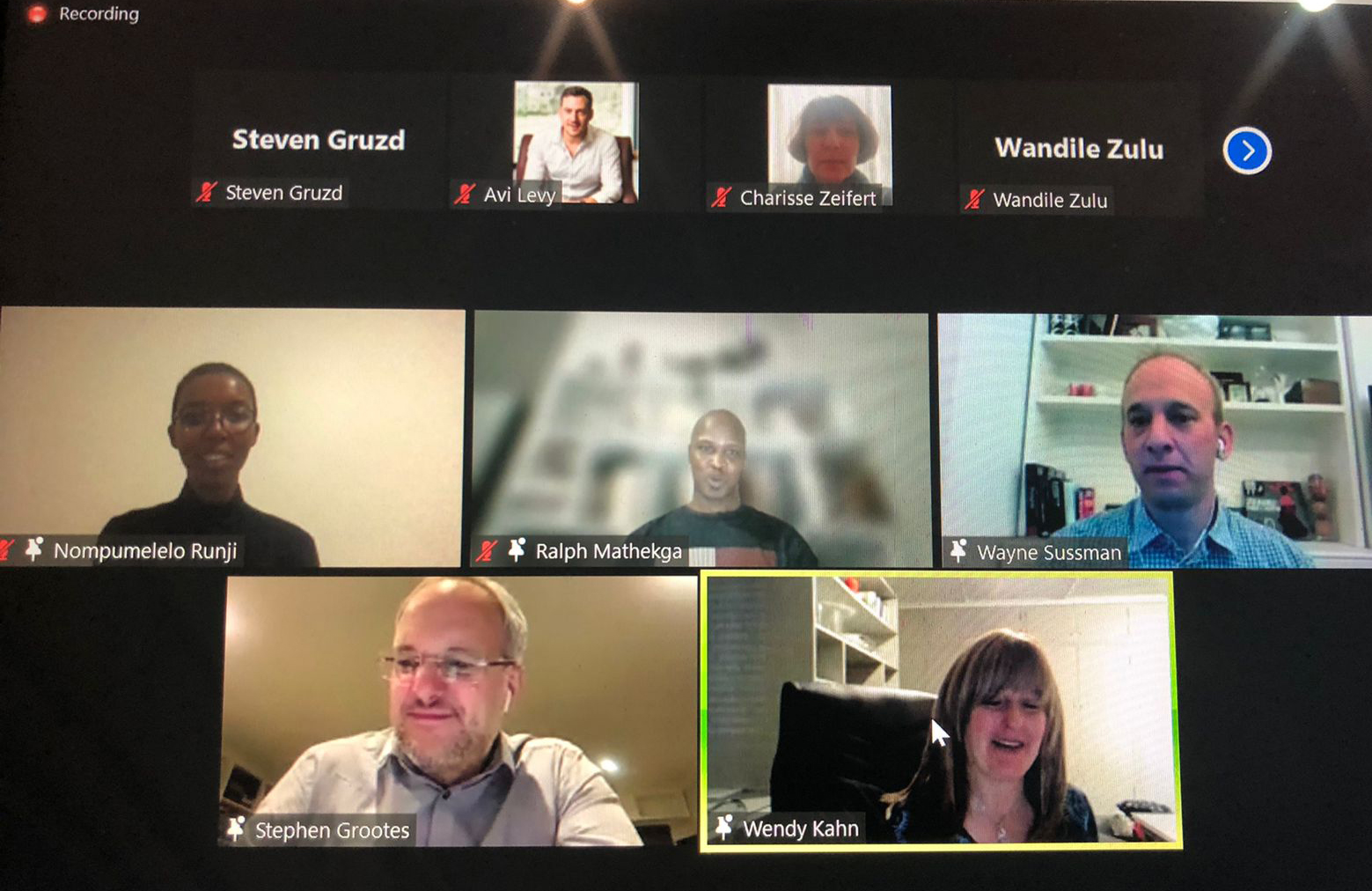click to dowload our latest edition
CLICK HERE TO SUBSCRIBE TO OUR NEWSLETTER


Published
3 years agoon
By
Steven GruzdSouth Africans go to the polls on 1 November in “elections that no parties really want”, according to political journalist Stephen Grootes. In the midst of a pandemic, established parties are losing support “and people have become angrier and poorer” since the last local government elections in 2016.
Grootes was moderating a webinar on Tuesday, 12 October, titled “Navigate the local government elections 2021”, organised by the South African Jewish Board of Deputies. The webinar is part of the Board’s mandate to encourage voter registration in the Jewish community, formally observe the elections, and promote political debate.
Are these municipal elections about service delivery or about elements of identity in the context of South Africa’s racialised inequality? According to Nompumelelo Runji, the founder and chief executive of Critical ThinkAR – a research and stakeholder management consultancy – it’s a little bit of both in this highly polarised society.
“Good governance isn’t just about clean audits, sewage infrastructure, and tarred roads,” she said. For many, the yardstick is whether their quality of life is improving or not. They are asking if the African National Congress (ANC) can really deliver for all rather than the elite few.
Political analyst Dr Ralph Mathekga also senses popular anger, but no consolidation of support by any political party to capitalise on the ANC’s failures. “The ANC is held back by its own history,” he said, and hopes to get by on mea culpas [acknowledgement of wrongdoing] and faith. “It’s the devil people know,” Mathekga said. He judged that talk of renewal in the ANC was illusory, describing it as “a party in great difficulty”. “Corruption has been democratised in local government, with mammoth irregularities in public procurement,” Mathekga said, pointing out that criminal elements like protection rackets have filled the vacuum where the state has retreated.
Runji said local elections were “a vehicle for employment, a jobs pipeline for parties. Capacity and skills are trumped by factional allegiances. There is a failure to adhere to financial governance practices like the PFMA [Public Finance Management Act] and the MFMA [Municipal Finance Management Act].” She characterised the problem as a toxic mix of lack of responsibility, no accountability, deficient oversight, and a dearth of consequences for maladministration. “Party loyalty and dynamics become more important than delivering services,” she said.
Wayne Sussman, elections analyst for Daily Maverick, views it as a unique election in which the two major parties have little momentum 20 days before the vote.
“There are only 400 members of parliament, but there are far more council positions up for grabs,” said Sussman. In an environment of high unemployment, the prospect of a middle-class job for five years in a municipal council has proved enticing for many. Independent candidates have mushroomed, and he expects them to do marginally better because of their sheer volume. “They will find it hard to influence politics in the metros, but they will play a role in this election,” Sussman said.
Looking at opposition parties, will the Democratic Alliance (DA) be punished at the polls? A lot depends on differential turnout, according to Sussman. If the suburbs come out in numbers and disillusioned ANC voters stay at home, “the DA may not do that badly. It was the first out of the starting blocks with its posters. But to use a rugby analogy, with the try-line in front of them, they have had knock-on after knock-on in the past week.” He predicts that the party will retain Cape Town and be the biggest or second biggest party in all the country’s metropolitan councils.
“The DA seems to want to attract controversy and get into trouble, and the Economic Freedom Fighters (EFF) has no plans to co-operate with anyone,” Mathekga said. “It would be shocked if it actually won a council.” He agreed that the DA often failed to read the public mood, and didn’t appear to have a real strategy for the Gauteng metros. The EFF is growing in South Africa’s neglected small towns, and the party may emerge as kingmaker in several councils, like it did in 2016. But its refusal to commit to coalitions makes for unstable politics. There is the real chance that some councils will be deadlocked and unable to agree on the election of a speaker, a mayor, and to pass the council budget. If they fail to do the latter, they will come under national administration. The speakers predicted there may be chaos like this in Tshwane, the nation’s capital.
Sussman is also carefully watching the performance of former Johannesburg Mayor Herman Mashaba’s ActionSA, which has taken a gamble by contesting only in Gauteng’s three metros (Johannesburg, Tshwane, and Ekurhuleni) and in three municipalities in KwaZulu-Natal. It has run a slick social-media campaign. “He has to do well on election night,” Sussman said. “If he does badly, it’s probably the end.”
Finally, the panellists agreed there was merit in retaining separate municipal elections, as it promoted local-level democracy. This particular election will certainly make for interesting analysis in the weeks to come.
